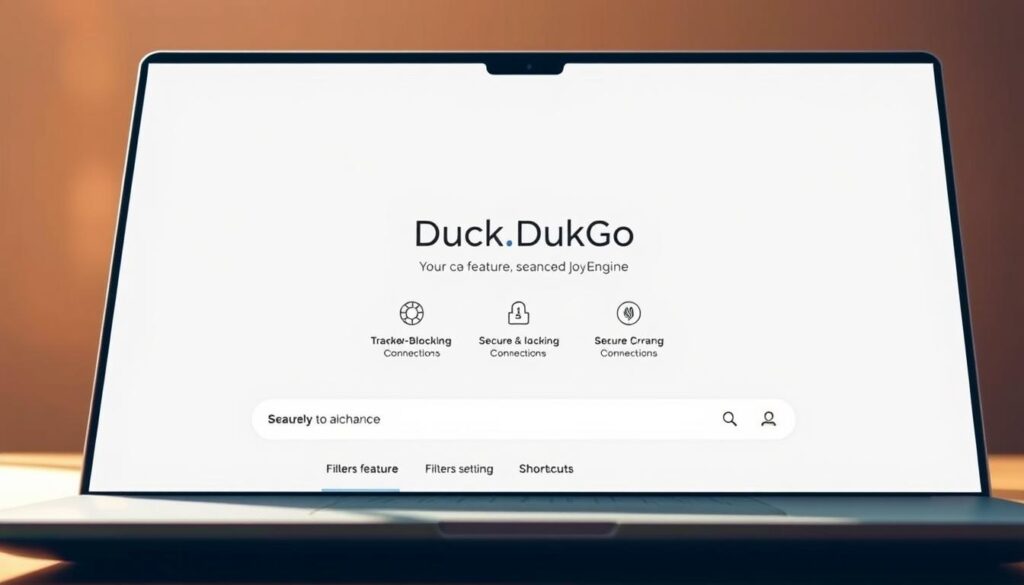In a world where every online move is monitored, finding a truly private way to explore the web feels almost impossible. Many platforms quietly collect your personal information, from your clicks to your location. But what if you could browse without leaving a trail?
One solution has gained over 250 million downloads by prioritizing user protection. Unlike traditional options, it automatically encrypts connections and blocks hidden trackers. Your activity stays anonymous—no saved histories, no shared data, no targeted ads.
Recent scandals, like unauthorized data harvesting by third parties, have pushed more people to seek alternatives. Studies show that 72% of Americans worry about their digital privacy daily. This shift explains why tools that safeguard information are growing rapidly.
Key Takeaways
- Your searches and browsing habits are never stored or sold
- Encrypted connections prevent third parties from accessing your data
- Built-in tracker blocking stops ads and analytics from following you
- Used by millions globally as a secure alternative to mainstream options
- Simplifies privacy without complex settings or compromises on results quality
Introduction to DuckDuckGo’s Privacy-First Approach
Privacy online is no longer a luxury—it’s a necessity. With 83% of people feeling they’ve lost control over their personal information, tools that prioritize confidentiality are reshaping how we interact with the web. This approach isn’t about hiding—it’s about reclaiming ownership of your digital footprint.
Guarding Your Data by Default
Unlike traditional search engines, this platform operates on a strict “no-log” policy. It never stores IP addresses, browsing histories, or identifiable details. Every query gets treated as anonymous—even the service itself can’t link your activity to your identity.
Here’s how it works: encrypted connections shield your searches from eavesdroppers. Built-in tracker blocking stops third-party scripts on websites from profiling you. The result? Clean results without invasive ads or hidden data collection.
The Shift Toward Transparent Tools
After high-profile data scandals, 64% of users now actively avoid platforms with poor privacy practices. Many find traditional browsers and search engines too cozy with advertisers. As one cybersecurity expert notes: “People want options that respect their boundaries without making them tech experts.”
Switching to privacy-first features takes seconds. No complex setups or compromised functionality—just immediate protection. Users still get relevant answers, maps, and news, but with their information staying strictly theirs.
Getting Started with duckduckgo.com search engine
Switching to a privacy-focused browsing experience doesn’t require technical expertise—just a few simple adjustments. Whether you’re on a laptop or smartphone, these steps ensure your data stays protected from the moment you start exploring.

Setting Up on Desktop and Mobile
Most browsers let you change your default tool in under a minute. Here’s how:
| Browser | Steps | Key Feature |
|---|---|---|
| Chrome | Settings → Search engine → Select from list | Encrypted connections |
| Firefox | Preferences → Search → Default provider | Tracker blocking |
| Safari | Safari menu → Search settings → Update choice | No saved history |
For mobile users, download the app from your device’s store. iOS and Android versions automatically enable privacy essentials like ad blocking and secure connections.
How to Configure Extensions
Boost protection with these steps:
- Install the Privacy Essentials extension from your browser’s add-on store
- Activate “Global Privacy Control” in the settings menu
- Customize cookie preferences for visited websites
This free tool grades sites’ privacy practices and forces HTTPS encryption. You’ll see a dashboard showing blocked trackers—often 30+ per day for average users.
Enhancing Your Search Experience and Privacy Features
Modern web users deserve both clarity and protection when navigating online spaces. Simple upgrades to your browsing setup can shield your activity while delivering reliable search results—no tech expertise required.
Encrypted Connections and Tracker Blocking Explained
Every query automatically uses HTTPS encryption, hiding your data from snoopers. Built-in defenses stop hidden trackers on websites—the ones that follow you across pages to build advertising profiles.
This dual approach means:
- No third parties can see your search history or location
- Websites load faster without resource-heavy ads
- Your personal information stays strictly private
How It Stacks Up Against Alternatives
See how privacy-first options differ from conventional tools:
| Feature | Privacy-First Option | Traditional Search |
|---|---|---|
| Data Collection | Zero history storage | Permanent activity logs |
| Ads | Non-targeted | Personalized based on searches |
| Encryption | Forced HTTPS | Optional security |
| Tracker Blocking | Built-in | Requires extensions |
For added protection, install the free browser extension. It grades site security, blocks invasive scripts, and lets you customize cookie settings in one click. You’ll notice cleaner pages and fewer distractions—all while keeping your digital footprint invisible.
Advanced Tips for Mastering Using DuckDuckGo
Taking control of your online experience goes beyond basic privacy settings. With a few tweaks, you can unlock powerful tools that make every interaction smoother and more secure. Let’s explore how to personalize your setup and use shortcuts that save time.

Personalize Your Setup Like a Pro
Start by adjusting visual preferences. Enable dark mode in the settings menu for nighttime comfort. Change regional filters to get location-specific results without sharing your address. Here’s a quick guide to essential customizations:
| Feature | How to Access | Benefit |
|---|---|---|
| Theme Options | Settings → Appearance | Reduce eye strain |
| Region Filters | Settings → Region | Localized answers |
| Default Privacy | Browser → Extensions | Automatic protection |
For mobile users, the app lets you clear history with one swipe. Activate “Always Use HTTPS” to encrypt connections on public Wi-Fi.
Speed Up Tasks With Smart Shortcuts
Type ! followed by a site code to jump directly to platforms. Need YouTube results? Try !yt cats instead of visiting the site first. Over 12,000 shortcuts exist for everything from recipes to flight tracking.
“These shortcuts cut my research time in half. It’s like having VIP access to the web.”
Three ways to use bangs effectively:
- Start queries with !w for Wikipedia entries
- Add !m to display map results instantly
- Combine multiple bangs for complex searches
Don’t forget the extension for your browser—it adds a privacy grade to every site you visit. You’ll quickly identify platforms that respect your boundaries.
Conclusion: Embrace a Safer, Private Search Journey
Your digital footprint matters more than ever. Traditional platforms like Google Search build detailed profiles from your activity, turning queries into marketing gold. But there’s another way—one where your personal information stays truly yours.
Privacy-first tools prove you don’t need invasive tracking for quality results. Automatic encryption shields your browsing, while built-in defenses stop hidden trackers. Unlike mainstream search engines, this service never stores your history or sells data to advertisers.
Switching takes seconds. Update your browser defaults or install the free extension for instant protection. You’ll enjoy cleaner pages, faster loading times, and ads that don’t stalk your every click.
Why settle for less? Take control with a platform designed to respect boundaries. Your search history disappears, your location stays private, and your choices remain yours. The web feels lighter when you’re not carrying invisible watchers.
Ready for a fresh start? Make privacy your default today—your future self will thank you.
